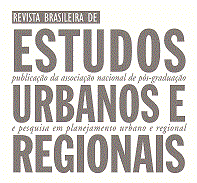Abstract
The aim of this article is to analyze the arrangements for the governance and social participation in the Arco Jurubatuba Urban Intervention Project (UIP), an urban instrument provided for in the 2014 São Paulo (SP) Master Plan, and its impacts on low-income territories. The article presents a case study of two Special Zones of Social Interest (ZEIS) located within the area of the project, in the south zone of the city. Two questions guided the investigation: (i) To what extent did the communities participate in the discussions regarding the proposal?; and (ii) What were the governance arrangements that resulted from the proposal, considering the overlap of instruments within the UIP. It is highlighted that the institutional arrangements and the instruments selected for formulating and implementing the UIP increased the complexity of the project, the fragmentation of the process and the superficiality of the procedures for participating and legitimizing the intervention. Choices made during the UIP design and its “matryoshka” of instruments made it difficult for people to identify when and where crucial decisions were made regarding the intervention that affected low-income territories, thereby impairing social participation and postponing (even preventing) any resistance.
Keywords:
Institutional Arrangements; Urban Instruments; Urban Governance; Social Participation; Urban Planning; Urban Intervention Projects; São Paulo (city)

 Thumbnail
Thumbnail
 Thumbnail
Thumbnail
 Thumbnail
Thumbnail
 Thumbnail
Thumbnail
 Thumbnail
Thumbnail
 Source: Own elaboration, with satellite images by
Source: Own elaboration, with satellite images by  Legend: Technical Chamber of Urban Legislation (CTLU); Municipal Council for Urban Policy (CMPU).Source: Own elaboration.
Legend: Technical Chamber of Urban Legislation (CTLU); Municipal Council for Urban Policy (CMPU).Source: Own elaboration.
 Legend: * In map 4 of the Bill the names of the two settlements corresponding to the codes were added, according to the legend of the official document; ** In map 7 of the Bill, interventions 04, 06 and 07 correspond, respectively, to the categories “park”, “environmental axis” and “roadway system”, according to the caption of the official document.Source: Own elaboration, with satellite images (
Legend: * In map 4 of the Bill the names of the two settlements corresponding to the codes were added, according to the legend of the official document; ** In map 7 of the Bill, interventions 04, 06 and 07 correspond, respectively, to the categories “park”, “environmental axis” and “roadway system”, according to the caption of the official document.Source: Own elaboration, with satellite images ( Source:
Source:  Source: Own elaboration.
Source: Own elaboration.